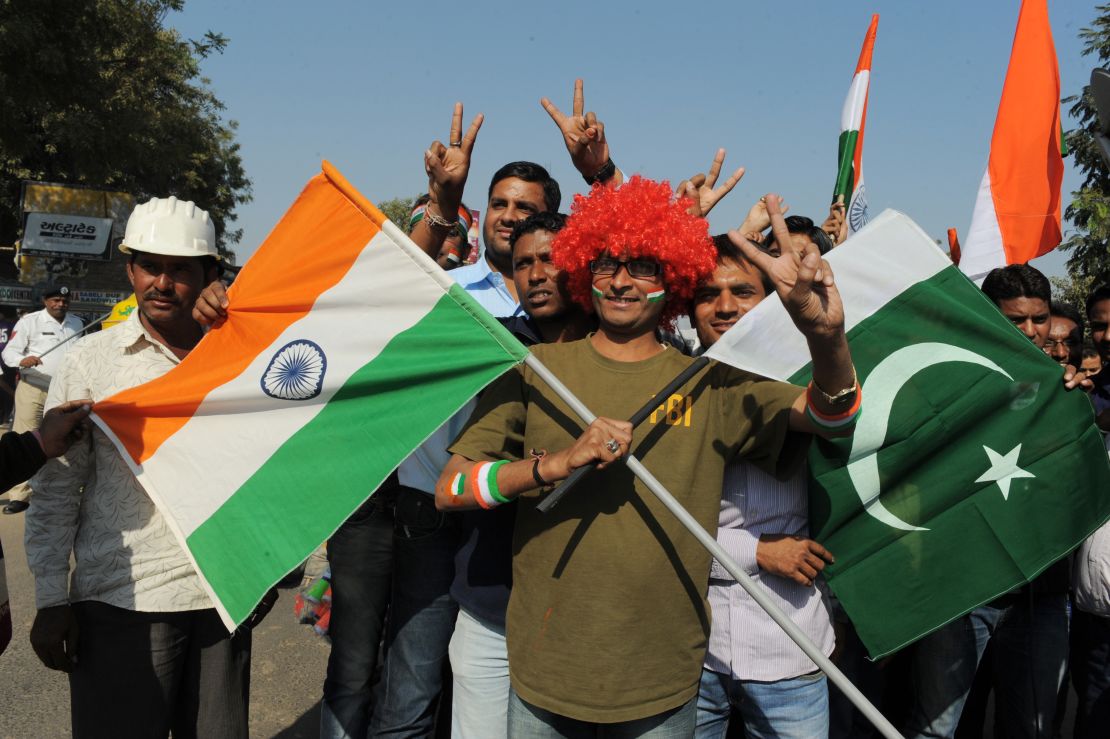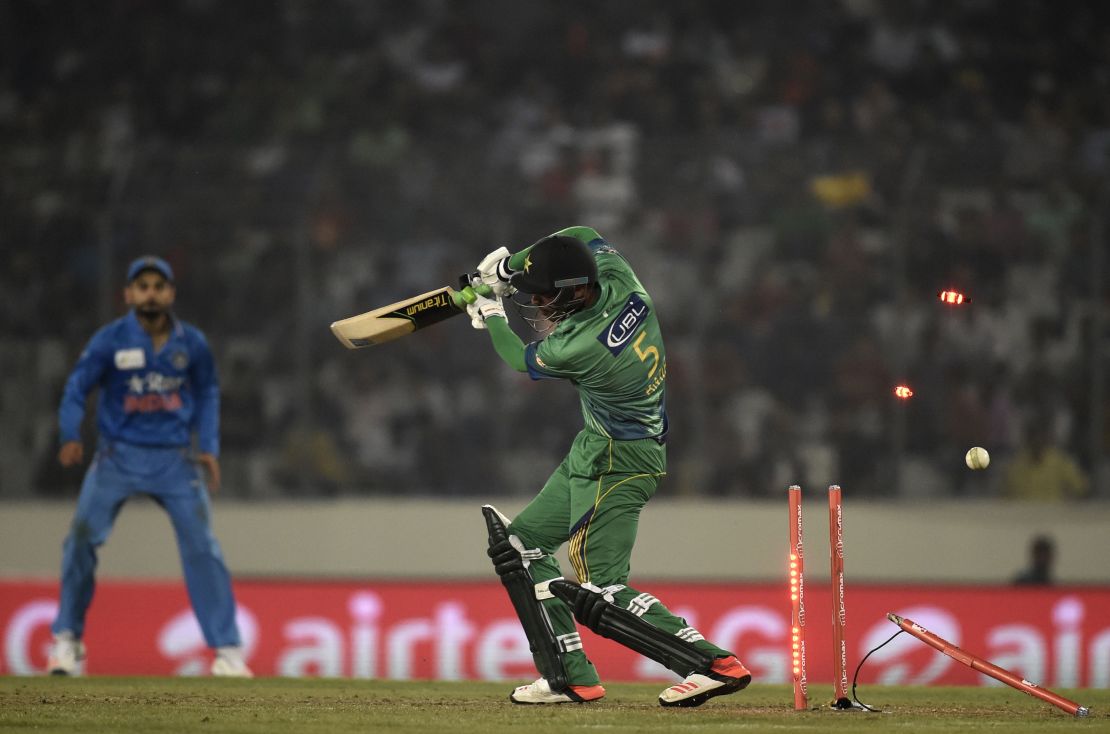Story highlights
Match comes amid political tensions between the two countries
The match could be watched by an audience of 1 billion
It was described during a recent press conference by Indian national cricket captain Virat Kohli as “just a game.”
But few sporting match-ups are capable of stirring such heated passions than that of India vs. Pakistan.
Billed as the world’s biggest sporting rivalry, the two teams are expected to draw a global TV audience of over a billion when they face-off Sunday, in the fourth match of the ICC Champions Trophy, in Birmingham, England.
The match – their first encounter this year – comes off the back of escalating political tensions between the two neighboring countries, following recent skirmishes along the border and a pending case at the International Court of Justice.
On Monday, Indian Sports Minister Vijay Goel added more kindling to the fire when he told reporters that India would not play Pakistan in a bilateral series, while cross-border “terror from Pakistan remains.”
“Terror and sports cannot go hand in hand,” Goel added, referring to ongoing violence in the disputed Kashmir region.
The Minister’s proposed sporting boycott will not affect Sunday’s tie, which is part of an international tournament, and not a bilateral five day series.
When loyalties cross borders

India is the tournament’s current reigning champion and hot favorite going into Sunday’s match.
But in the UK, where over two million people claim roots in either India or Pakistan, such odds are irrelevant.
The match is only the fourth time the two teams have met competitively on British soil and the rarity of the event makes it a unique occasion for members of the UK’s Indian and Pakistani diaspora.
At the Osterley Cricket Club (OCC) in west London, expectation was mounting ahead of Sunday’s match.
“I think it’s great. It brings both nations together. We are away from our respective countries yet both Indian and Pakistani fans sit together and watch the game,” said 24-year-old Arslan Yasin, who is one of several members of the OCC to claim South Asian heritage.
In 2015, an estimated one billion people tuned in across the world to watch India beat Pakistan by 76 runs during the 2015 ICC World Cup in Australia.
A map posted by Indian news channel TimesNow on February 15 showed where #IndvsPak was trending on Twitter during the match.
The Indian subcontinent was the most illuminated, but pockets across the world with a significant South Asian diaspora were also lit up.
For many overseas, the game represents more than just regional bragging rights: “It’s a showcase of exceptional talent, skills, temperament and fear on a platform witnessed by two great cricketing nations,” said OCC member Raunik Patil, 31.
Cricket’s arch rivals
The rivalry between the two nations dates back to 1952, just five years after independence, when India and Pakistan played their first test series. India hosted and went on to clinch victory.
The first One Day International (ODI) games followed the 1978 Test series in Pakistan. Both were won by the host nation.
Since 1952, India and Pakistan have played 15 Test series and 17 ODI series.
“My first memories of an India-Pakistan match are from when I was 13 years old, when India hosted Pakistan for a series of ODIs and Test matches. Pakistan won the ODIs and drew the Test. When the Pakistan team came back, everyone was happy,” said Yasin, who moved to England from Pakistan as a teenager.
“But on the other side, the Indian fans were not (happy). They held protests, and burned effigies of players … That was when I realized what Pakistan vs. India means for both nations,” he added.
Over the last decade, the two nations’ sporting relationship has further deteriorated amid ongoing political confrontation.

Following the deadly 26/11 Mumbai attacks in 2008, which were blamed on a Pakistan-based militant group, India canceled their 2009 tour of Pakistan.
The last India-Pakistan bilateral series took place in India in 2012, though the two rivals continue to play each other sporadically during international tournaments.
Their most recent encounter was in 2016, when India won by six wickets in Kolkata during the ICC World Twenty20. The game was initially meant to be played in Dharamsala but was moved in order to provide adequate security.
There have been repeated efforts from the cricketing communities within both Pakistan and India to organize a cricket series between the two nations, but political tensions have so far prevented it from happening.
“The Indian board has killed the excitement with politics being brought into the game. It’s hurting cricket and fans are disillusioned with politicians,” Nadeem Chowdhry, 50, an opening batsman who’s played with the OCC for 15 years, told CNN.
“They should be using sport to lead the way for co-existing in peace. It’s the only place where two teams representing their countries have nothing but to display cricketing skills to the world. Shame on those bodies stopping millions enjoying sport,” he added.




